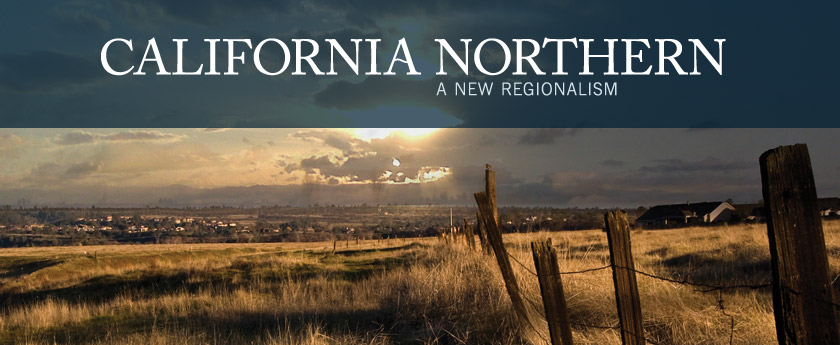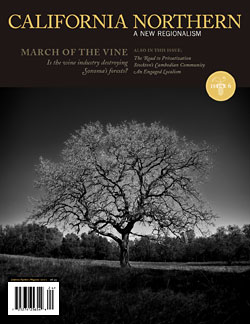A New Regionalism
I hope that in some future accounting, today’s fascination with localism will be known more as a movement than a fad. I’ve seen its manifestations throughout Northern California, including the explosion of local food, campaigns to boost local economies, and land-use fights to preserve community identity. Yet I haven’t found an overarching system of beliefs that ties these efforts together. Certain strains of thought weave their way through localist endeavors, to be sure, like distrust of consolidated power and a desire for more self-reliance, and movements have been built around less. But it’s troubling that devoted advocates of a more local way of life often can’t seem to define what their end game is—what sort of society, from the bottom up, they envision should all their wildest hopes be realized. Instead, these advocates rely heavily on “more”—more local food, more local economies, more local culture. In this framework, society isn’t so much transformed by localism as shifted ever so slightly, our consumption of local goods increased, but our basic political and economic structures left in place. As more and more people significantly alter their lives in the name of localism, moving out to farms, starting local currencies, homesteading in the suburbs, I wonder: is this small shift really what all the fuss is about?
I think most advocates enamored by localism simply haven’t had the time to hash out a future beyond their next immediate goal. The current movement is young and amorphous—to develop a framework for its future would require time and energy that would distract from more pressing efforts. But as localism continues to gain steam, it’s worthwhile to consider whether its disparate representatives might agree upon some sort of unifying vision to guide their efforts. Instead of plugging away at pet issues independent of one another, envisioning how society could be transformed by localism could ensure sustained commitment to the issue.
It’s not a well-known worldview or one without flaws, but a body of thought called “bioregionalism” may be the best guidance the current crop of localists have. Simply put, in a bioregionalist world society is organized into politically autonomous regions, with boundaries dictated by natural features and local tradition. Residents would democratically control these areas—which could be as big as the Sacramento Valley or as small as your local watershed—but the form of democracy practiced would be far more inclusive than our current one. Most, if not all, goods for survival would be produced within the bioregion, and residents would have an in-depth knowledge of their culture, history, and environment.
This is an excerpt of “A New Regionalism”

